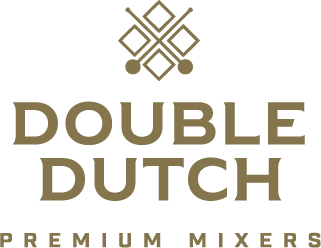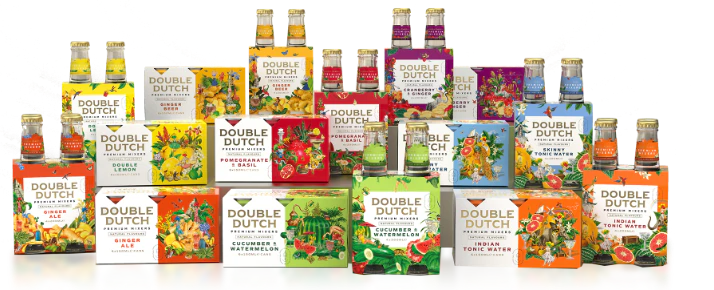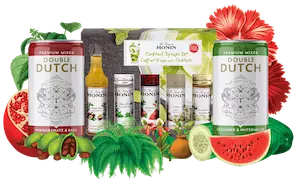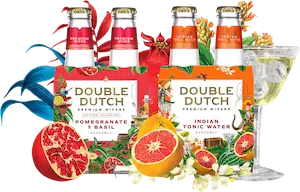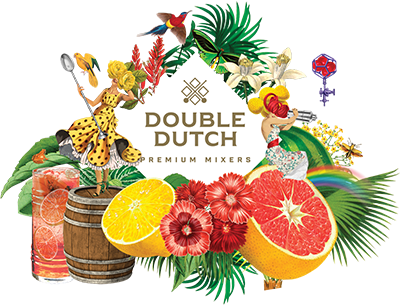How Much Sugar Is in Gin?
Unpacking the Sweet Truth Behind a Classic Spirit
Gin, a globally cherished spirit, is celebrated for its crisp character and aromatic blend of botanicals. But beyond its complex flavor, many health-conscious drinkers ask an important question: How much sugar is actually in gin?
Whether you're counting carbs, reducing sugar, or simply curious about what’s in your glass, understanding gin’s nutritional profile can help you make more informed decisions.
In this article, we'll delve into the sugar content of gin, explain the distillation process, examine how flavorings and mixers influence sugar levels, and explore how it fits into a low-sugar lifestyle.

The Short Answer: Is There Sugar in Gin?
Pure gin contains virtually no sugar. Thanks to its distillation process, traditional gin is a low-sugar, low-carb spirit. However, flavoured gins and pre-mixed gin beverages often contain added sugars. The sugar content can also increase dramatically depending on the mixers used—tonic water, for example, can turn a sugar-free spirit into a high-sugar cocktail.
If you're trying to reduce sugar, your safest bet is to stick with pure gin and pair it with low-sugar mixers.
Understanding Gin's Sugar Content
Pure Gin: Sugar-Free by Design
Traditional gin is made by distilling neutral grain alcohol with botanicals like juniper berries, citrus peel, and spices. During distillation, any sugars present in the base ingredients are removed, leaving behind a spirit that is:
- Carb-free
- Sugar-free
- Suitable for low-carb and ketogenic diets
Because the flavor of gin comes from botanicals rather than added sugars, it offers complexity without sweetness—ideal for those watching their sugar intake.
Flavoured Gins: Where Sugar Can Sneak In
Unlike classic gin, flavoured and infused gins often contain added sugars to enhance taste or balance bitterness. These can include:
- Cane sugar
- Corn syrup
- Honey
- Agave nectar
The amount of sugar varies widely depending on the brand and recipe. While some flavoured gins remain low in sugar, others can contain as much as 5–10 grams (or more) per serving. Always check the label for nutritional information or sugar content if you're unsure.

View our sapling salty dog cocktail recipe.
The Distillation Process: Why Pure Gin Has No Sugar
Distillation is a purification method where alcohol is separated from the mash (fermented grains, fruits, etc.) by heating. Sugars and carbohydrates, being non-volatile, do not carry over during distillation.
This is why pure distilled spirits like gin, vodka, and whiskey are naturally sugar-free unless something is added after distillation.
Gin Nutrition Facts: Calories and Carbohydrates
A standard 1.5 oz (44ml) serving of pure gin contains approximately:
- 97 calories
- 0 grams of sugar
- 0 grams of carbohydrates
These calories come entirely from alcohol (ethanol), not from sugar or carbs. For those following low-calorie or low-carb diets, pure gin is a favorable option—just be cautious about what you mix it with.
Explore more on alcohol and calorie content in this DrinkAware article.
How Mixers Affect Sugar Levels
Mixers can dramatically alter the nutritional profile of a gin-based drink. While gin itself may be sugar-free, many common mixers are loaded with sugar:
Regular tonic water
Typically contains 16–18g sugar content (per 200ml)
Lemonade
Typically contains 20–25g sugar content (per 200ml)
Ginger beer
Typically contains 18–22g sugar content (per 200ml)
Orange juice
Typically contains 18–20g sugar content (per 200ml)
View our Gin Pom Pom recipe here.
Lower-Sugar Mixer Alternatives
If you're watching your sugar intake, consider using alternatives. Soda water or skinny tonic are excellent low-sugar options that maintain flavour. Choosing alternatives allows gin lovers to enjoy their cocktail without the added sugar, creating refreshing and light drinks.
Summary: How to Enjoy Gin Without the Sugar Spike
To enjoy gin responsibly and minimize sugar intake:
- Choose pure distilled gin with no added flavours or sugars.
- Read labels when buying flavoured gins—some are deceptively sweet.
- Opt for low- or no-sugar mixers to keep your cocktail balanced.
- Keep servings moderate and enjoy mindfully.
Final Thoughts: Sipping Smart
Gin is one of the best spirit choices for those watching their sugar intake. Pure gin is sugar-free, carb-free, and relatively low in calories. The key lies in what you pair it with. Whether you prefer a classic gin and tonic or a creative botanical blend, making smart choices about your mixers and labels can help you enjoy your favorite drink without overindulging in sugar.
So go ahead—raise your glass to mindful sipping, bold botanicals, and better health.
Cheers to enjoying gin the smart way!

